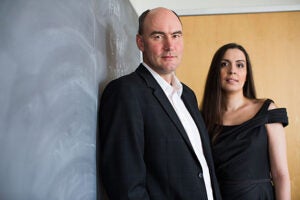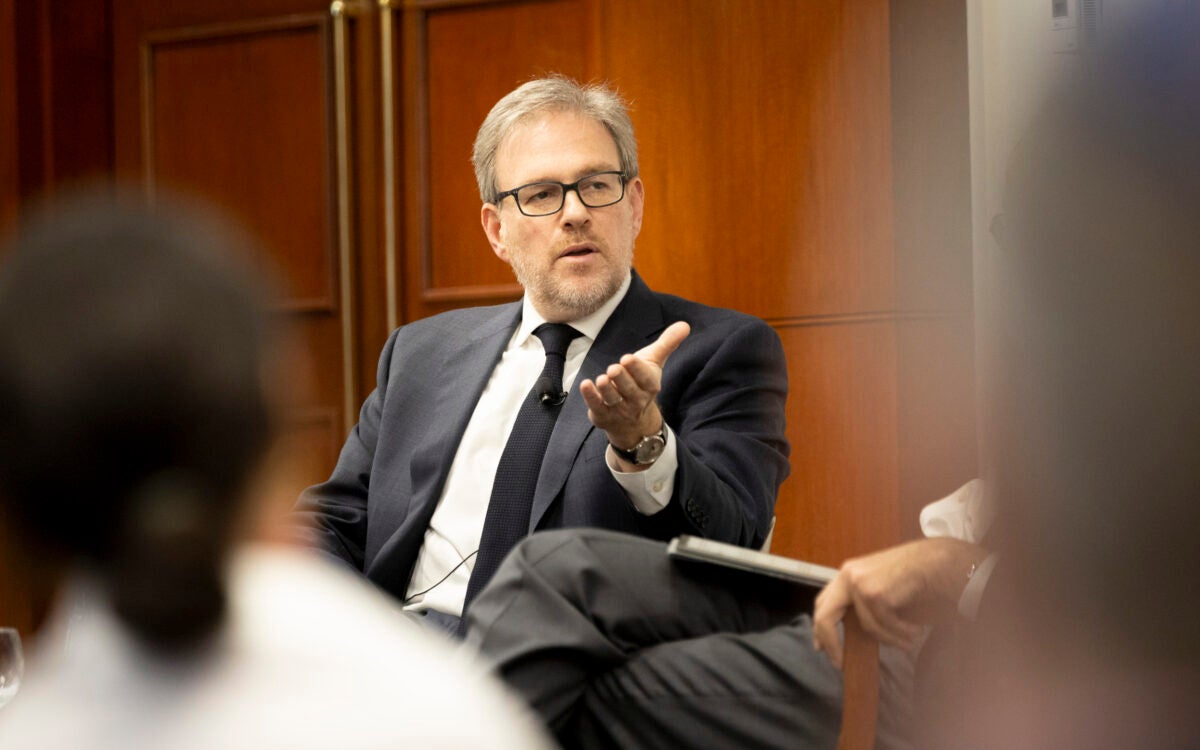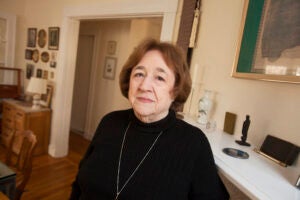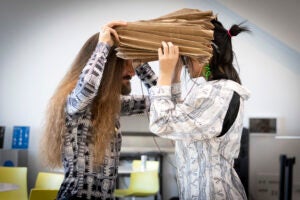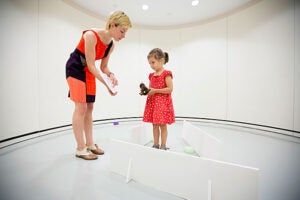Tag: Peter Reuell
-
Science & Tech
Muting the Mozart effect
Though it has been embraced by everyone from advocates for arts education to parents hoping to encourage their kids to stick with piano lessons, two new studies conducted by Harvard researchers show no effect of music training on the cognitive abilities of young children.
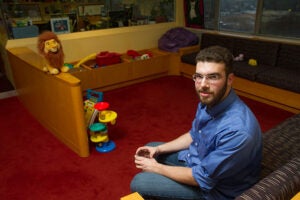
-
Campus & Community
Liu named Marshall Scholar
Brandon Liu has been named one of 36 students nationwide to receive a Marshall Scholarship, which will allow him to study for two years at a university in the United Kingdom.
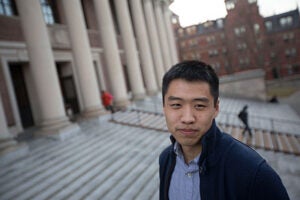
-
Health
Polly want a vocabulary?
Irene Pepperberg, best known for her work with an African grey parrot named Alex — whose intelligence was estimated as equal to that of a 6-year-old child — recently relocated her lab to Harvard, where she continues to explore the origins of intelligence by working with birds.
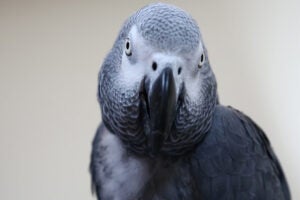
-
Science & Tech
‘Deep pragmatism’ as a moral engine
Professor Joshua Greene talks about his new book, “Moral Tribes: Emotion, Reason, and the Gap Between Us and Them.” What makes an issue like abortion or Israeli-Palestinian relations seem insurmountable, he said, can be chalked up, in part, to brain wiring.
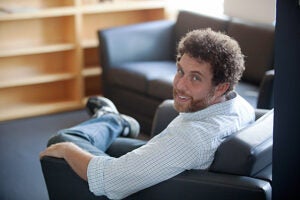
-
Health
Malaria in 3-D
Using an imaging technique known as high-speed holographic microscopy, Laurence Wilson, a fellow at Harvard’s Rowland Institute, worked with colleagues to produce detailed 3-D images of malaria sperm — the cells that reproduce inside infected mosquitoes — that shed new light on how the cells move.
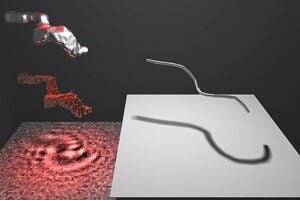
-
Campus & Community
Harvard leads in Fulbright awards
Harvard is the leading producer of Fulbright Scholars for 2013–14, with 44 students — 32 from Harvard College and 12 from the Graduate School of Arts and Sciences — receiving the prestigious grants to conduct research or teach abroad. Of the 44, 39 accepted the awards.

-
Health
Stages of bloom
Harvard researchers have solved the nearly 200-year-old mystery of how Rafflesia, the largest flowering plants in the world, develop.

-
Campus & Community
Top-notch teachers
Edo Berger, the John L. Loeb Associate Professor of the Natural Sciences, and Anne Pringle, an associate professor of organismic and evolutionary biology, have been named the recipients of the 2013 Fannie Cox Prize for Excellence in Science Teaching.
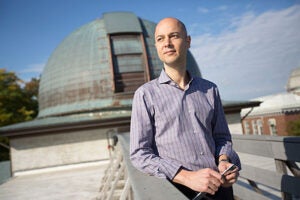
-
Campus & Community
Nine named 2013 Cabot Fellows
Nine professors in Harvard’s Faculty of Arts and Sciences have been named Walter Channing Cabot Fellows. The 2013 honorees were awarded for their distinguished publications.
-
Health
New insight on wild nights
New research suggests that, despite moonlight’s apparent hunting advantage, large predators such as lions are actually less active on the brightest nights, while many prey animals — despite the risk of being eaten — become more active.
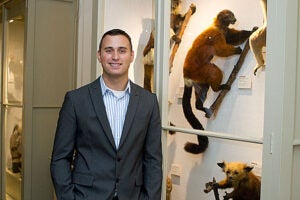
-
Science & Tech
The teaching launch
A new study found that middle school teachers can have a real impact not only on students’ short-term educations, but on whether they attend college and on the size of their future paychecks.
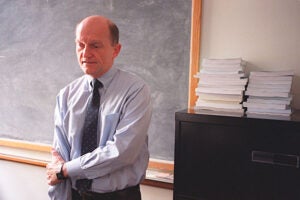
-
Science & Tech
What’s in a face?
Using scans of the brain, Harvard researchers show that patterns of neural activity change when people look at black and white faces, and male and female faces.
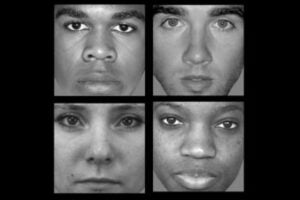
-
Science & Tech
A theory rewarded
Following the announcement of the 2013 Nobel Prize in physics, Harvard faculty who participated in the search for the Higgs boson said they were honored to have played a role in the discovery of the particle that proved theoretical predictions correct.
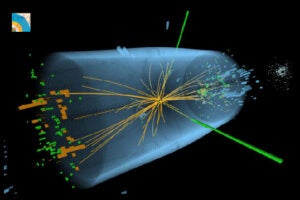
-
Campus & Community
The future is now for FAS
Faculty of Arts and Sciences Dean Michael D. Smith recently spoke about the priorities for the coming campaign and his vision for the FAS.
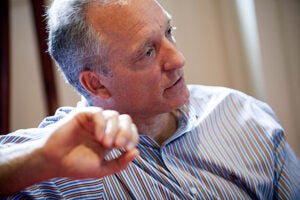
-
Science & Tech
Seeing light in a new way
Working with colleagues at the Harvard-MIT Center for Ultracold Atoms, Professor of Physics Mikhail Lukin and post-doctoral fellow Ofer Firstenberg have managed to coax photons into binding together to form molecules — a state of matter that, until recently, had been purely theoretical.
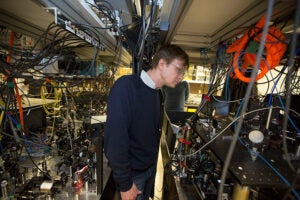
-
Health
Deconstructing motor skills
Harvard researchers have found that the brain uses two largely independent neural circuits to learn spatial and temporal aspects of complex motor skills.
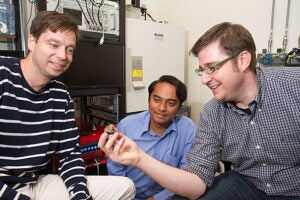
-
Campus & Community
A professorship and a MacArthur
Jazz musician and composer Vijay Iyer, who won a MacArthur Foundation grant, in January will become the first Franklin D. and Florence Rosenblatt Professor of the Arts in Harvard’s Department of Music.
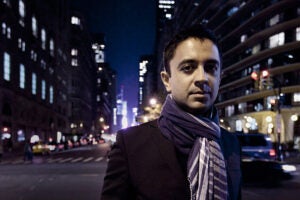
-
Health
A foundation for future research
Harvard researchers recently developed the most detailed “specificity profile” for Cas9 — a “machine” made of protein and RNA that can be programmed to target specific DNA sequences and to precisely cut, paste, and turn on or turn off genes. Future researchers will use the data when developing genetic tools and therapies.
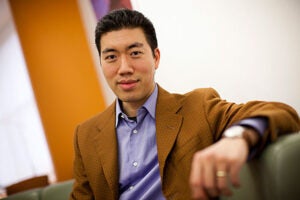
-
Health
The good life, longer
By synthesizing the data collected in multiple government-sponsored health surveys conducted in recent decades, researchers from the National Bureau of Economic Research, Harvard University, and the University of Massachusetts were able to measure how the quality-adjusted life expectancy of Americans has changed over time.
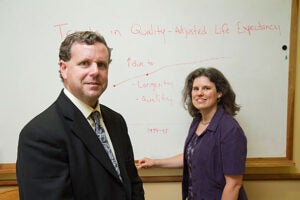
-
Health
Summer in the lab
Students from local high schools spent a chunk of the summer at work in a Harvard lab as part of program co-sponsored by the University’s Life Sciences Education program and the Howard Hughes Medical Institute.
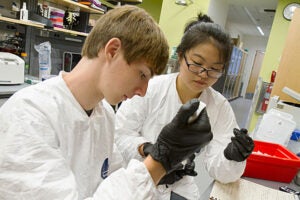
-
Health
Lasering in on tumors
In the battle against brain cancer, doctors now have a new weapon: an imaging technology that will make brain surgery dramatically more accurate by allowing surgeons to distinguish between brain tissue and tumors, and at a microscopic level.
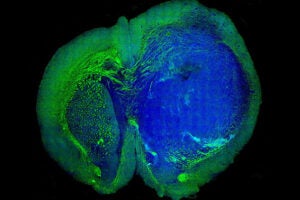
-
Science & Tech
Pinched minds
The accumulation of money woes and day-to-day anxiety leaves many low-income individuals not only struggling financially, but cognitively, says Harvard economist Sendhil Mullainathan. In a study featured in Science, he reports that the “cognitive deficit” caused by poverty translates into as many as 10 IQ points.
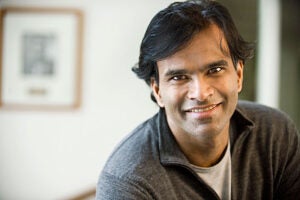
-
Campus & Community
David S. Landes, 89, dies
David S. Landes, a renowned historian whose work focused on the complex interplay of cultural mores and historical circumstance, died Aug. 17 at age 89.
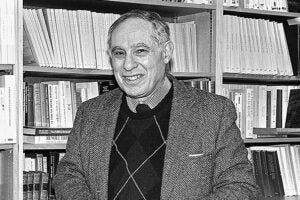
-
Science & Tech
Popsicle Earth
A recently published paper says that during the last glacial maximum, more ice than previously thought covered the globe.
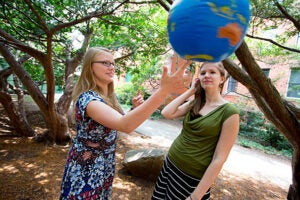
-
Science & Tech
The look of music
A new study by Chia-Jung Tsay, a musician and Harvard Ph.D., examines the power of visual information in evaluating classical music.
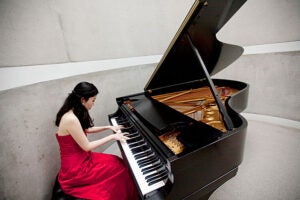
-
Health
Good health lasts later in life
Working from data collected between 1991 and 2009 from almost 90,000 individuals who responded to the Medicare Current Beneficiary Survey, Professor David Cutler has found that, even as life expectancy has increased over the past two decades, people have become increasingly healthier later in life.
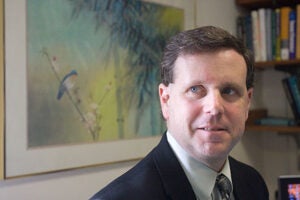
-
Health
Bacterial blockade
Harvard researchers have identified a pair of genes that appear to be responsible for allowing a specific strain of bacteria in the human gut to break down Lanoxin — a widely prescribed cardiac drug — into an inactive compound, as well as a possible way to turn the process off.
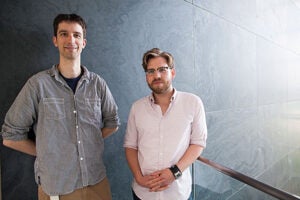
-
Health
Clues to cholera resistance
Researchers have long understood that genetics can play a role in susceptibility to cholera, but a team of Harvard scientists is now uncovering evidence of genetic changes that might also help protect some people from contracting the deadly disease.
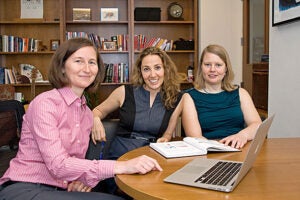
-
Health
New plan of attack in cancer fight
Harvard Professor Martin Nowak and Ivana Bozic, a postdoctoral fellow in mathematics, show that, under certain conditions, using two drugs in a “targeted therapy” — a treatment approach designed to interrupt cancer’s ability to grow and spread — could effectively cure nearly all cancers.
